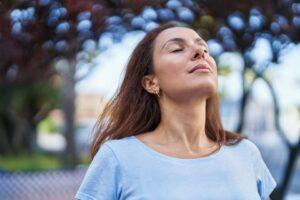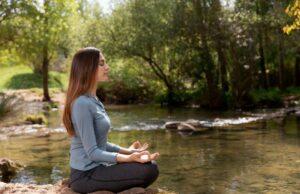Relaxation is a state of physical, mental, and emotional calm and ease, marked by reduced tension, stress, and anxiety. It is crucial for maintaining overall well-being, as it allows the body and mind to recover from the demands of daily life, leading to improved mental clarity, emotional stability, and physical health. There are various relaxation techniques and practices that individuals can employ to help reduce stress, promote a sense of calm, and enhance overall well-being.
Some popular relaxation techniques include deep breathing exercises, progressive muscle relaxation, mindfulness meditation, visualization, and engaging in activities that bring joy and tranquility, such as listening to music, reading, or spending time in nature. Regularly practicing relaxation techniques can help individuals develop better stress management skills, improve sleep quality, and increase resilience in the face of challenges.
Relaxation
The benefits of relaxation include:
Reduced stress and anxiety: Relaxation techniques can help alleviate stress, promoting a sense of calm and well-being.
Improved mental clarity and focus: A relaxed state allows the mind to think more clearly, enhancing problem-solving abilities and decision-making.
Enhanced emotional stability: Relaxation can help regulate emotions, reducing the intensity of negative emotions such as anger, frustration, and sadness.
Better physical health: Relaxation has been shown to lower blood pressure, reduce muscle tension, and improve immune function.
Improved sleep quality: Practicing relaxation techniques can promote restful sleep and help alleviate insomnia.
Increased resilience: Regular relaxation can help individuals develop better coping strategies and increased resilience in the face of stress and adversity.
Some effective relaxation techniques include:
Deep breathing exercises: Slow, deep breaths can help activate the body's relaxation response, reducing stress and promoting a sense of calm.
Progressive muscle relaxation: This technique involves tensing and relaxing different muscle groups in a systematic order, helping to release tension and promote physical relaxation.
Mindfulness meditation: Focusing on the present moment and observing thoughts and sensations without judgment can help reduce stress and increase relaxation.
Visualization: Imagining a peaceful, calming environment or situation can help promote relaxation and reduce anxiety.
Engaging in enjoyable activities: Participating in activities that bring joy and tranquility, such as listening to music, reading, or spending time in nature, can help promote relaxation and well-being.
To incorporate relaxation into your daily routine, consider the following strategies:
Schedule regular breaks: Set aside time during the day to engage in relaxation techniques or activities that bring you a sense of calm and ease.
Practice mindfulness: Incorporate mindfulness into daily activities, such as eating, walking, or working, to promote a greater sense of relaxation and presence.
Create a calming environment: Set up a dedicated relaxation space in your home, free from distractions and clutter, where you can practice relaxation techniques or engage in calming activities.
Establish a bedtime routine: Implement relaxation practices, such as deep breathing or progressive muscle relaxation, as part of your nighttime routine to promote restful sleep.
Prioritize self-care: Ensure that you are taking care of your physical, mental, and emotional well-being, making time for relaxation and stress reduction throughout your day.
Related Semantic Entities for Relaxation











